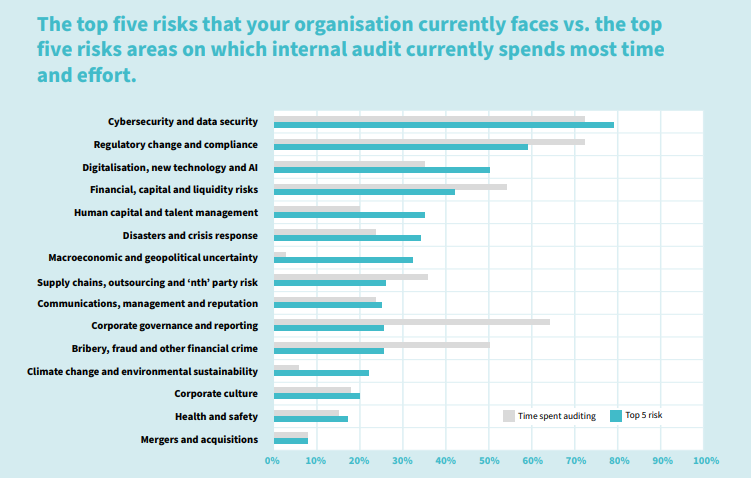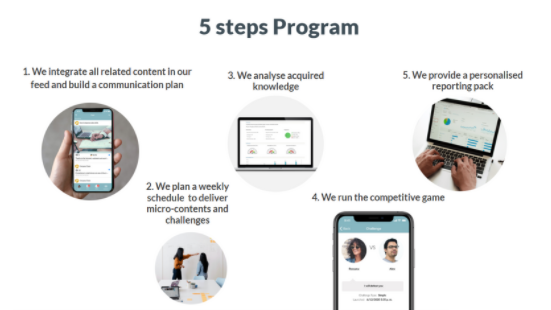The health crisis caused by COVID-19 has forced changing government decisions to deal with an uncertain scenario. All organizations have been surprised by the number of standards that are published and must be implemented quickly. This has led to over-exertion in all areas of business to respect and interpret official guidelines from authorities so as not to risk sanctions or damage from non-compliance with the regulatory framework. .jpg?width=622&name=1200x627-blog%20(7).jpg)
At Atrivity we know that companies have not had time to reflect on the suitability of their compliance model to this situation, for this reason, we have set out 5 keys to compliance for this coming year 2021 anticipating the action plans and treatment of possible future scenarios. Enjoy the reading!
Key #1 -Digitalization of Compliance
Compliance has been in place within companies for over 20 years to ensure proper procedures and prevent any type of fraud. Now more than ever, companies are forced to adopt new regulations because of the current digital revolution. Nowadays, many employees are teleworking, companies have their teams relocated and digital platforms are used which eliminate layers of bureaucracy and management. This leads to the emergence of new risks and responsibilities inherent to the use of algorithms in data analysis and the use of artificial intelligence.
The main key to addressing this paradigm is to offer a holistic approach by integrating a compliance strategy into the overall business strategy, in order to avoid inconsistencies between the compliance model and the business project. This paradigm shift must go hand in hand with a corporate culture that allows for the rapid adoption of new processes, quickly training teams regardless of where they are located.
Through mobile applications such as Atrivity you will be able to communicate and share valuable information to train all employees on compliance. Obtain an analysis of the degree of knowledge per employee, teams, most failed questions and most failed topics. Being able to reinforce them later without the need to stop operations!
Key #2 - Legal Scope Outsourcing
One of the current developments is that companies, faced with certain complex legal and compliance processes, tend to outsource the more specialized tasks. According to Deloitte's Legal Observatory, companies' internal legal departments need external advice with technical specialization that is superior to their own professional profiles. Managers of large companies are opting to outsource certain compliance functions because of increased regulation and difficult adaptation.
Deloitte stresses that the main reasons for outsourcing both legal and compliance functions are experience, service quality and trust. The aim is to be complementary and not a substitute, to generate sufficient confidence to be worthy of managing such complex and sensitive matters as compliance. We predict an increasingly promising future for this collaboration.
Key #3 - R&D in Compliance?
The compliance and internal audit functions, now more than ever, cannot let down their guard and become indispensable as a support to the Council in monitoring and ensuring compliance. In this sense, companies must Research & Develop internal procedures that allow them to obtain a response forecast in the face of other "waves" of the pandemic as key elements in the management of the crisis.
The actions carried out in areas such as:
- Competition and relations with competitors.
- Criminal risks and the principle of documenting activities and controls.
- Financial and fiscal information and economic solvency.
- IT infrastructure, data and confidential information.
- Relations with third parties (customers and suppliers).
- Human Resources.
- Stock and supply chains.
Despite having all this under control, the duties for the organization do not end there. Companies must ensure that employees are aware of new risks and new guidelines for action, through a clear, continuous and two-way internal communication system. But how can you do this?
Mobile apps such as Atrivity are perfect for providing the knowledge necessary for your employees in small doses, without the need to stop operations. And not only that! With good planning, the tool allows managers from different work areas to offer a constant training schedule to their teams, so that they can combine the most routine tasks in their workplace with necessary training on the product or strategies.
Key #4 - Change in Risk Perception
According to the Risk in focus 2021 report produced by the ECIIA, we found compliance to be the second risk for companies with a 59% score. The current pandemic has accentuated the existing risks and assigned new levels of priority that companies must adapt now and in a three-year horizon, but why? The huge increase in teleworking, access to critical infrastructure and data through personal devices, makes organizations more vulnerable to all kinds of cyber attacks.
Virtually no business plan takes into account preparation for such massive change in a short space of time. Another risk to consider is the regulatory burden. Why? The European Securities and Markets Authority advised national regulators across the EU to allow a two-month delay in the publication of financial reports for listed companies. This could tempt companies to delay compliance when it is required after the granted deferrals expire in 2021.

Source: WorldComplianceAssociation.com
Key #5 - Establishes Documented Procedures
The coronavirus crisis has highlighted the importance of how a company manages an unexpected situation, anticipating the impact of the pandemic on the brand. Not only is it important to detect potential threats or continuously assess risks. It is essential that the company establishes documented procedures that allow them to respond, recover, resume and restore the operational level of their predefined activity before the crisis. How can they do this? Through the implementation of alternative work policies, the reorganization of production means or the health protection of employees to continue with their activity.
There are mobile applications such as Atrivity, which contribute to enhance the access and use of your LMS platform. Select the content you wish to reproduce in the tool in the form of more understandable and dynamic training pills and, associate them with games that evaluate the knowledge acquired. The result of this strategy is an improvement in the commitment to training and a greater motivation of the teams thanks to the game.
Atrivity's team conclusions
Organizations face an unprecedented challenge, with a high degree of uncertainty and constant evolution. Now more than ever, companies must take a step forward by preventing, detecting and responding to increasingly complex new regulations and adapting them in record time. Compliance is no longer a trend but a key need to protect the company from exceptional situations, increasing the confidence of the market, workers, customers and suppliers.






-1.jpg)
.jpg)

